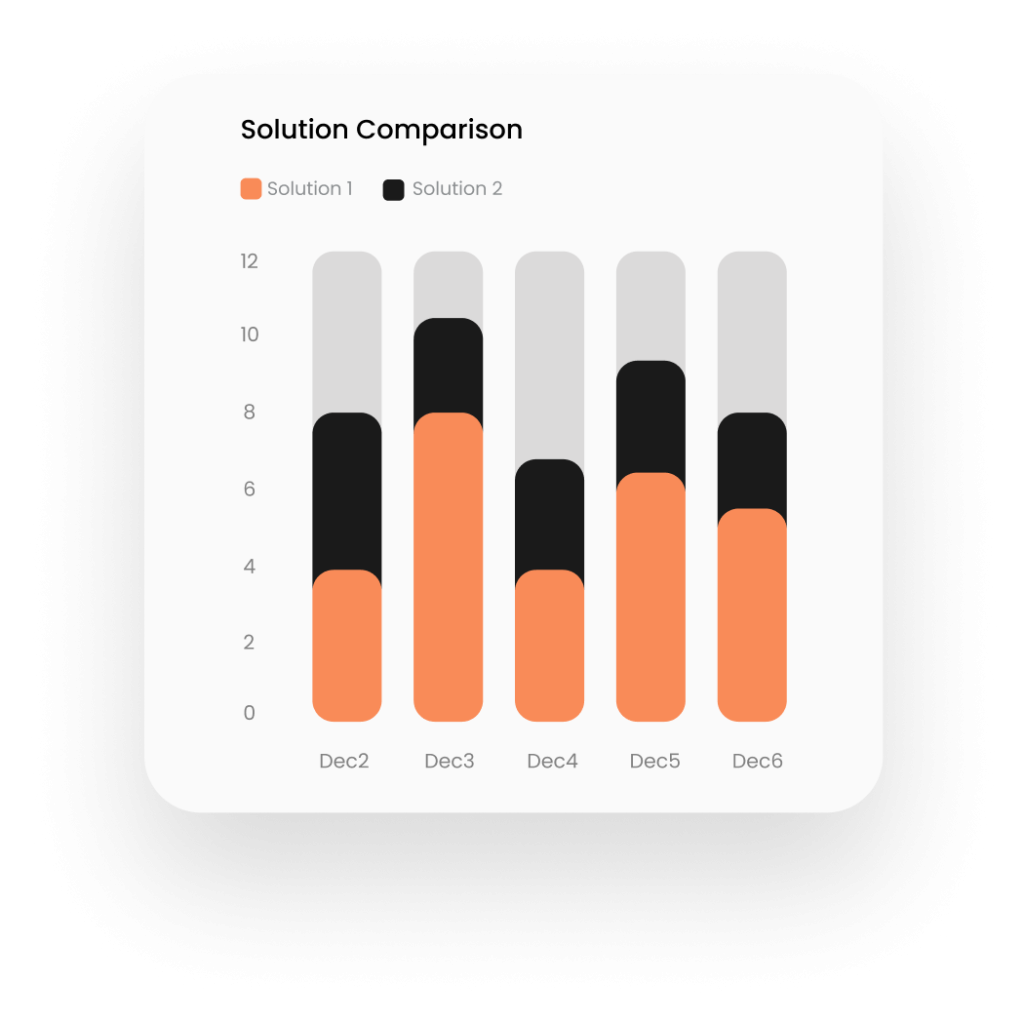Tailored insurance for electrical contractors and companies. We specialise in all types of insurance for electricians, from solar installation to industrial services.
Most electricians will require a combination of various insurance policies that are required for electrical contractors depending on the type of work that they do.
Regardless of whether you do domestic electrical, commercial, solar installation we can tailor an insurance package for you.
Don’t spend countless hours shopping around, we provide you the most competitive electrical contractor insurance options the first time.
Professional
tailored advice
Competitively
priced policies
Comprehensive
cover options

Professional
tailored advice

Competitively
priced policies

Comprehensive
cover options




Most Dedicated Business Insurance Broker 2023

QLD 2023 Top Insurance Broker Finalist
Peoples Choice 2023 Winner
Fast Starter Award 2023
QLD Top Insurance Broker Finalist 2022 Finalist
QLD 2022 Top Insurance Broker Finalist
Top Thought Leader 2022 Winner



What you need to know about
Electrical contracting insurance policies is what we specialise in. We specialise in providing tailored insurance for electrical contractors to make sure they are covered for the work that they do. We have insured many electrical contractors from all over Australia, so we know a thing or two about this type of insurance.
Your insurance needs as well as the insurance cover you need to have in place will depend on the electrical work that you are doing.
The most common policies that are needed by electrical contractors are:
We work with business owners and contractors to determine their insurance requirements that meet their budget, licensing requirements and covers the type of work they will do. Different states across Australia have different requirements for electrical contracting insurance. We are across all of the state by state requirements so we can make sure your meet the requirements of your electrical contractors licence.
We keep our paperwork to a minimum so its simple, quick and straight forward.
We understand that running an electrical business takes a lot of work and as a business owner you’re expected to be across every part of your business. We have made our process as simple as possible.
All of our Brokers work with each electrical business to understand how your business runs. We can then give you general advice on what electrical contractor insurance is required to be in place to protect your business.
Domestic electrical work will usually cover supply, installation and maintenance work at domestic properties. Most insurers will treat this as quite low risk and is usually automatically included under the electrician insurance definition. Most insurers will automatically include cover for any domestic work that you do. When putting your policy in place you usually need to declare the highest level of risk. For example, if you have listed your business activities as a commercial electrical contractor, you wouldn’t need to disclose domestic work in addition unless the insurer specifically asks.
Commercial electrical work will usually pose a slightly higher level of risk when putting a insurance policy in place for your business. This will still cover you for supply, install and maintenance work on commercial sites however, it is treated as a higher level of risk. This is due to your work usually being on sites where higher values could be claimed against. This is also due to you working on larger sites with more trade contractors. As your policy covers personal injury and property damage, this level of risk increases.

Industrial work follows the same process as commercial electrical work with the increase in risk from your insurance provider. Industrial work is usually electrical work that is done at places like hospitals, universities, Government facilities, airports and other higher risk locations. Not all insurers will provide cover for electrical work at these sites however, it does need to be disclosed. It is important to work with your insurer or insurance adviser to reduce your risk as much as possible. Failing to disclose industrial related work on your electrical contracting insurance policy will most likely lead to no cover being provided for this type of work.
Solar repairs and installation work continues to become a leading activity for electrical contractors with more an more electricians included this in their list of services. The important thing to note is that insurers treat solar installation companies and electrical contractors differently. This is because solar installation companies have different level of risks to that of your standard electrican. When you are quoting your electrician coverage it is important to determine whether you are a solar installation company or an electrician company that does a modest amount of solar installation.
Just like solar installation and repairs if you are a refrigeration business then you need to insure business the same. It is common on an electrician's coverage policy to list multiple business activities however, it’s important to insure the core aspect of your business first. An electrical contractor that also does some refrigeration work can be insured as an electrician. However, a refrigeration contractor being insured as a ‘fridgey’ isn’t typically insured for electrical work outside of their refrigeration scope. Different contractors are licensed differently and due to this are insured differently as well.

Standard audio and visual electrical work can be classified under the domestic, commercial or industrial classifications of electrical contracting insurance. This however, changes if you are doing security system installation work. All insurers currently want to know if you are doing CCTV systems, swipe card systems and anything else that provides security to any facility. The same also goes for fire alerting systems such as smoke alarms and monitoring units. These types of activities need to be declared to an insurer as part of your business activities. Not doing this reduces the insurers ability to rate their level of risk accordingly and as such will impact your insurance policy in the event of a claim.
We work with many electrical contractors just like you
We ensure that your policies are providing you with the best level of cover. Don't pay for insurance that you don't need.

We work with you and our insurers to continue to provide you the with competitive premiums across our network.
Your dedicated account manager will work with you and tailor the advice to your business legal liability and what covers you should have in place.
Your account manager will continue to provide you with professional insurance advice as your business grows and expands.

Not sure what policies you need?
The first insurance for electrical contractors that you will need is your own Public Liability Insurance. You’ve probably heard of this in toolbox chats at smoko time but do you actually know it is?
A Public Liability Insurance is usually required in order for an electrical contractor license applicant to obtain their electrical contractors license. This policy is designed to cover you for personal injury or property damage that you may cause.
So you’ve spent plenty of your hard earned money on good tools for your electrical business, have you thought about how they can be insured?
Most trade contractors don’t think about this until something happens. This is what we try and prevent by making sure our contractors know how affordable tools of trade insurance for electrical contractors is.
There are two different ways you can insure your tools. Either itemising and specifying each item over $3,000 or having a total value of cover without specifying and having up to $3,000 cover per tool. You can also have a combination of both.
As a mobile business most electrical contractors put a lot of time and money into their motor vehicle. Whether this is a van, light truck or ute there is a good chance that you customised your vehicle to make your job easier on the road. Most standard electrician insurance policies won’t give you high enough cover for things like signage, vehicle wraps, fitouts, shelving and the likes.
A commercial motor insurance policy will also ensure that your vehicle is covered for business use. This is not standard on basic and cheaper policies. Truck insurance policies will usually be required for trucks over 2 tonne however, can still be considered under a commercial motor policy.
If you are taking on larger contracts than part of your electrician insurance policies should be a construction insurance or contract works insurance. This will only usually be required when contracts are in place for working that you have been contracted to do.
For example, you may be contracted to complete a job and whilst you’re completing the job you are responsible for materials (whether you have supplied them or not). This means that should something happens to these items, your contract requires you to replace them.
Common items that can typically be required to cover are commercial generators, ducted air-conditioning, cold-room units and many other materials.
You may also consider having this kind of business insurance cover in place on smaller jobs as even smaller jobs will usually require you to outlay money on materials that won’t be paid for until the contract of works is finished.
Let’s talk about the elephant in the room shall we? Most electrical contractors don’t have any form of income protection.
This is a problem that most business owners face and when considering your insurances, you should always consider yourself as well.
With most trade contracting businesses, the business doesn’t operate without you. So if you were injured, there is a good chance that jobs are going to stop coming in as well.
This is where your income protection can support you until you get back on your feet.
Some states across Australia have specific insurance requirements to be compliant with your electrical contractor license.
In QLD the requirements includes a minimum public liability insurance cover for $5,000,000 with a $50,000 consumer protection endorsement.
If you’re in NSW there are not any specific requirements for an electrical contractor.
VIC has a similar requirement to QLD that all electrical contractors hold a minimum of $5,000,000 public liability insurance cover.
ACT regulators do not require a proof of insurance for electrical contractors to obtain certificiation. They do however state that you must produce your insurance document if it be requested.
SA doesn’t have any conditions of requirements for licensed electricians.
WA electricians and contractors must hold a public liability insurance policy and proof of insurance must be supplied when applying and renewing your license.
NT doesn’t currently have any insurance requirements for licensed electricians.
Although no requirements are required for NSW, SA and NT most worksites across the country will require you to provide proof of insurance before working on their job site.
Electrical contractors insurance is a broad way of referring to multiple policies that are held by electricians.
These policies will usually include the likes of public liability insurance, tools of trade cover, motor vehicle insurance and income protection cover.
We refer to this broadly because each policy is generally quite important in its own merits.
It covers you for any damages or injuries that occur as a result of your work as an electrician. This can include coverage for your tools and equipment, as well as liability coverage in case someone is injured while you are working.
If you are self-employed or work for a company that does not provide insurance, then it is important to have your own policy in place. It can protect you from financial losses if something goes wrong while you are working.
Considering the level of cover provided by your public liability insurance the cost of insurance for electricians is quite cheap.
Based off our average premium for electrical contracting insurance policy the average premium for a public liability insurance policy is between $400 to $700 annually depending on the work you do and where you are located.
It’s a great question and it makes perfect sense to assume this considering you typically do the same electrical work around the country.
The reason why the cost is different between the states is due to different states having different requirements for your electrical license.
For example, QLD requires an additional $50,000 consumer protection cover and as this is additional cover that the insurer would have to pay for, a higher premium is charged.
Yes, your public liability insurance covers your business in its entirety.
This means that if your business is held liable and the damages fit within the scope of your cover then if it was caused by an employee or apprentice then it would be covered.
If the damages were caused by a sub-contractor, they are not considered employees and would be treated differently in the event of an insurance claim.
The cost of this insurance will vary depending on the coverage you choose and the size of your business. Talk to Priority today about the needs of your business and we’ll let you know all the ways in which we can help.
This depends on your insurer as some will cover incidental work on mine sites that are in non-operational areas such as accomodation blocks, admin buildings and mess halls. There is also a good chance that regardless of whether your insurer excludes this work or not you were likely asked a question about high risk areas when taking out the policy and there is a good chance that you likely said no. As a specialist mining insurance broker we have tailored policies for trade contractors working on mine sites.
The first step is to speak with an Insurance Broker so that we can ask questions about your business and get familiar with how you operate. This allows us to tailor a suitable electrician coverage package to your needs.
Once we understand how your electrical business runs we can give you an overview of what insurances that you need. This can be a range of just public liability insurance or other insurances such as tools cover, motor vehicle, consumer protection insurance, products liability insurance or income protection.
We will then contact a number of our insurers and request them to provide us with a quote. Once all of our quotes come back, we will review them and present you with the best option. We will outline our recommendation to you and seek your acceptance.
Once we have your instructions to proceed with the policy we will then organise payment of the policies. Policies can be paid annually or via our monthly premium funding options.

© 2023 Priority Insurance Brokers. All Rights Reserved. | DCSX Group Pty Ltd T/
As Priority Insurance Brokers | ABN 95 655 563 616 | ACN 655 563 616 | CAR
1295220 Authorised representative of Community Broker Network Pty Ltd |
AFSL 233750 | ACN 096 916 184